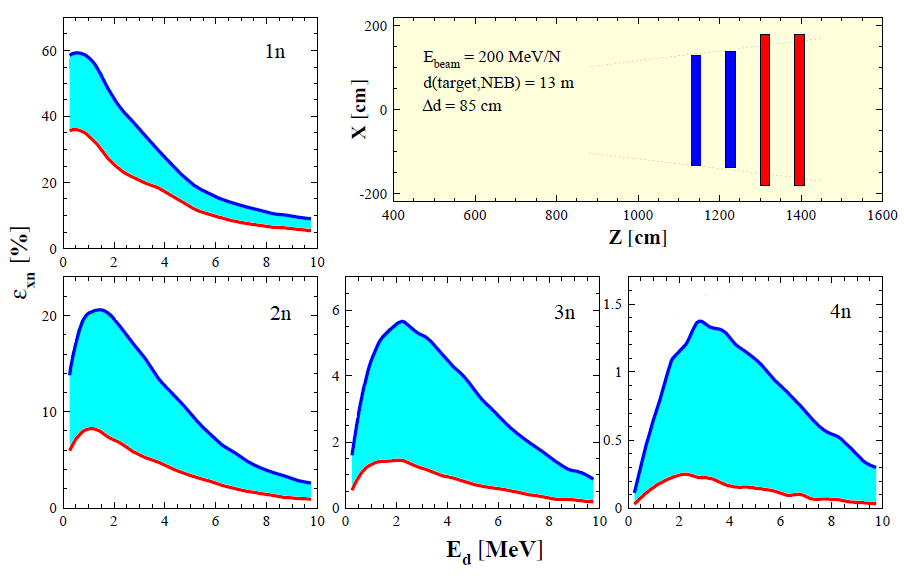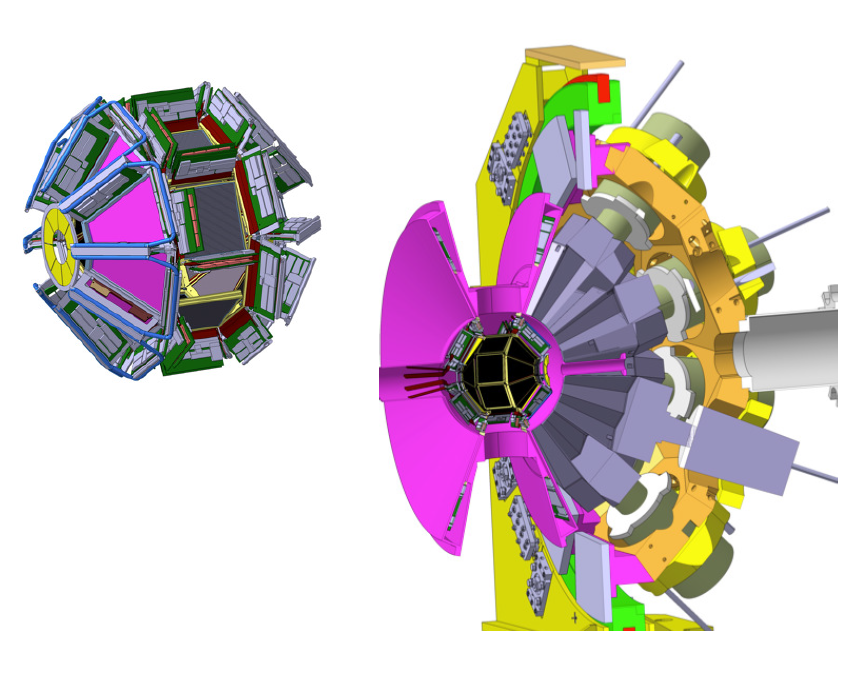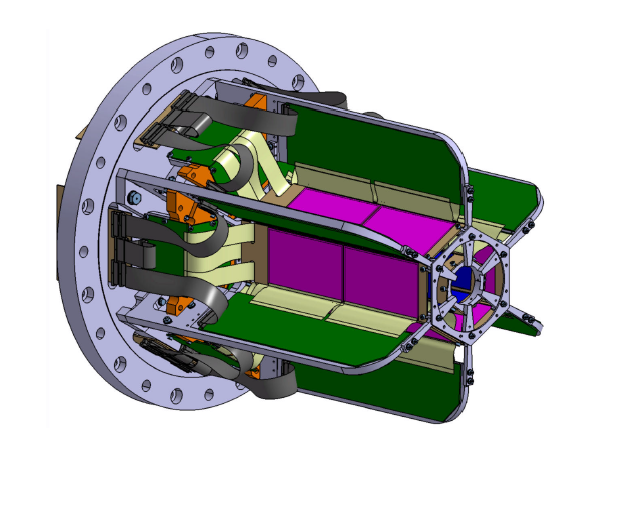R&D technical developments
NEBULA-Plus
In order to significantly improve the neutron detection efficiency of the existing NEBULA multidetector at SAMURAI (RIBF-RIKEN), two additional walls (NEBULA-Plus), composed of 90 scintillator slats, are being assembled by the group. As a first step in the upgrade of all SAMURAI acquisition electronics, the 90 new slats will be instrumented with the “FASTER” digital electronics developed at LPC Caen. NEBULA-Plus is financed by the ANR EXPAND grant – “Explorations Across the Neutron Dripline”. The commissioning of NEBULA-Plus is planned for the fall of 2021 with the first experiments in 2022.

GRIT
The group is playing a key role in the development of a new AGATA-coupled silicon track multidetector for direct low-energy reactions. GRIT will be a compact 4p multidetector, which requires the development of dedicated electronics to enable signal processing of about 8000 tracks, including the implementation of pulse shape discrimination. In this context, the LPC microelectronics and FASTER teams play a major role in the development of the QAD for GRIT. The project is a collaboration between IN2P3, INFN (Italy), GANIL, Surrey (UK), USC Santiago (Spain), BARC (India) and the provisional schedule foresees that GRIT will start operating in 2025.

STRASSE
In order to improve the capabilities of the high energy direct reaction program, the group has been involved in the STRASSE tracker project (collaboration led by colleagues at the Technical University of Darmstadt) which aims to improve vertex detection in thick liquid H2 targets. Currently, the MINOS system used for many SAMURAI-based experiments can provide vertex detection with an uncertainty of about 5 mm. STRASSE aims to reduce this uncertainty to 1 mm, or less, by employing an array of micro-track silicas in a two-layer barrel configuration. The coupling of STRASSE with the CATANA CsI multidetector will allow the reconstruction of the missing mass for the (p,2p) and (p,3p) reactions. The group is responsible for the design and fabrication of the reaction chamber, including support structures for the detectors and electronics. STRASSE is scheduled to be commissioned in late 2021 with the first experiment in spring 2022.
